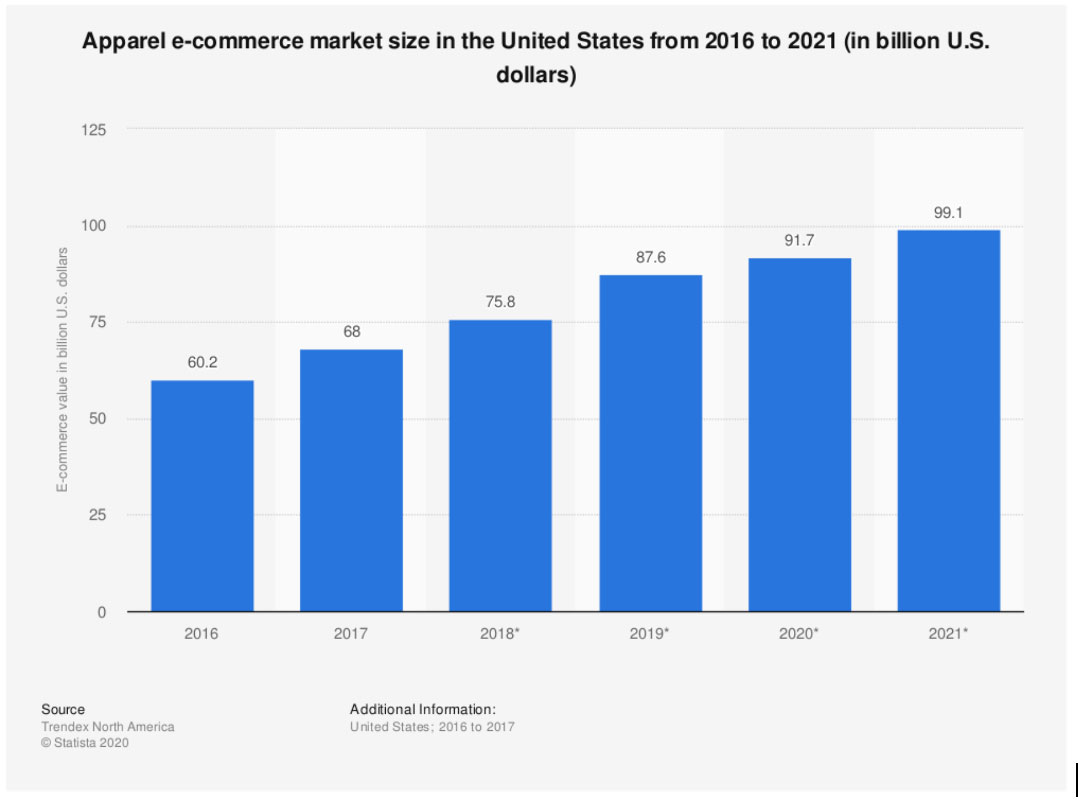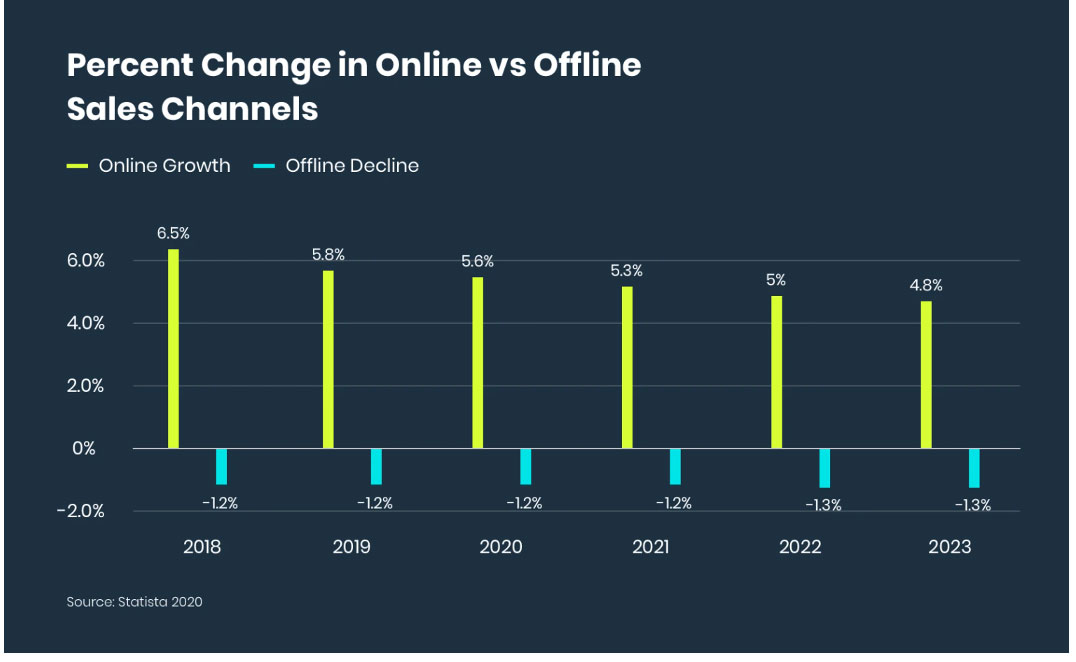5 Reasons Apparel, Cosmetic, and Health and Beauty Brands Outsource eCommerce Fulfillment
eCommerce: It's the Best of Times and the Worst of Times

Any marketer or brand manager for a health and beauty or apparel company must eventually deal with a lot of complicated logistics. Brands used to focus on shipping pallets of goods to retail locations. But today’s reality is more complex. More and more shoppers look online to order old favorites or get inspired to make trial purchases. Instead of shipping pallets, brands must ship one or two items direct to consumers at a time and deliver a brand experience that “wows” consumers. Maybe that’s why so many organizations have become overwhelmed by the complexity of eCommerce fulfillment.
While online sales are hot, many brands are struggling to keep up with the demand. The combination of record-breaking online sales,1 staffing shortages, and pipeline supply issues has resulted in dire challenges that aren’t easy to fix.
To make matters more complicated, consumer buying habits continue to change quickly. While offline sales plunged in the Apparel and Health and Beauty categories in 2020, online sales surged. And these trends show no signs of stopping.

Figure 1. "Apparel e-commerce market size in the United States from 2016 to 2021" from Trendex North American, Copyright Statista 2020

Figure 2. "Percent Change in Online vs. Offline Sales Channels" Statista 2020
There’s no doubt about it. The nature of business is changing. As more and more apparel and health and beauty businesses get used to this new normal where eCommerce rules, the question of more complicated fulfillment becomes more urgent and more challenging.
Should a business keep online fulfillment in-house or seek a reliable third-party fulfillment (3FP) partner to handle this increasingly important revenue stream? This article shares five reasons more and more apparel, cosmetic, and health and beauty brands are outsourcing eCommerce fulfillment.
1. Outsourcing eCommerce fulfillment relieves staffing shortages

While the trend towards online sales has been evident for several years, 2020 introduced a fresh challenge into the mix. A new labor shortage2 now means it’s harder and harder to scale up staff to meet demand. How do companies ship more products when it’s difficult to hire more employees?
Outsourcing eCommerce fulfillment is one way to solve issues related to supply and demand. Outsourcing labor-intensive fulfillment tasks such as order management, warehousing, returns processing, inventory control, kitting, pick and pack, and shipping not only allows brands to refocus their teams on development, marketing, sourcing, and manufacturing, but it also relieves the pressure of continually recruiting and training additional staff.
2. Third-party fulfillment for apparel and health and beauty companies eliminates the need for more warehouses
Maintaining warehouses full of apparel, beauty, or health products can be complicated and time-consuming, requiring a brand to make ongoing investments in real estate, logistics software, technology, equipment, human resources, and insurance. That’s why, as brands grow, they often choose to outsource warehousing to an eCommerce fulfillment specialist.
In addition to providing storage space, sophisticated 3PF teams can also offer temperature-controlled environments, precise inventorying, and seamless integration to various picking, packing, and shipping functions.
3. Qualified cosmetic, vitamin, and supplement fulfillment contractors ensure optimal warehouse conditions

When it comes to apparel, health, beauty and cosmetic or cosmeceutical product fulfillment, inventory management is rarely straightforward. Whether the product is made of cotton, lanolin, butyl acetate, or vitamin C, most product categories require specialized handling, precise storage conditions, tracking of expiration dates and Lot #’s, temperature and humidity requirements, intelligent handling, and branded shipping or packaging procedures.
A qualified 3PF partner will use sophisticated technology that inventory products by a myriad of factors, including the expiration date, lot number, velocity, FIFO, and more. These top fulfillment partners are set up to track thousands or even millions of SKUs simultaneously without missing a beat.
Additionally, some health and beauty products require special disposal. If products expire, a qualified fulfillment partner will deal with the expired products in ways that protect the environment and comply with local, state, and federal requirements, including RCRA regulations.3
Health and beauty companies should make sure their fulfillment partner’s warehouses are suited to accept cosmetic products. Warehouse facilities must be able to store cosmetics competently and reliably. Make sure employees have been trained to handle these products safely.
4. Experienced and accurate pick/pack/ship teams quickly fill apparel, cosmetics, and vitamin and supplement orders, boosting customer satisfaction
Fulfilling an endless stream of custom orders isn’t easy. It takes detailed warehousing procedures, skilled teams, automation, and sophisticated systems. As eCommerce customers become more sophisticated and demanding, fast order processing and receiving can be the factor that separates thriving brands from those that are merely surviving.
A good 3PF partner will have quick, efficient pick and pack processes in place. They’ll ensure each order gets processed quickly and put into the appropriate box or polybag before shipping. Sometimes multiple orders can be packed together to reduce shipping costs or dimensional weight.
Each box or polybag will contain documentation of the order to ensure the customers get exactly what they ordered. It should be packaged in a manner that delivers a dynamic brand experience. Well-run fulfillment centers can also offer kitting services, gift wrapping, handwritten gift notes, and more.
Many fulfillment centers will receive heavily discounted shipping rates from major carriers, and they’ll pass those discounts onto their valued clients.
Best of all, fulfillment centers can handle returns, product refurbishment, and exchanges on behalf of the client. A good 3PL partner will manage returns efficiently and quickly. They will determine which items can go back onto the warehouse floor and which products need to be repackaged, refurbished, or discarded.
5. Each client gets an account manager. Instead of submitting e-tickets to request service, clients work with real people in real-time.
While warehousing and shipping are critical, a big part of eCommerce fulfillment is managing changes, issues, and opportunities. A good eCommerce fulfillment center provides proactive account management. Real people answer questions, set up new SKU’s, route inbound PO’s and much more. That means brands can focus on growing the business instead of worrying about orders getting out the door. Qualified eCommerce fulfillment centers build teams of trained professionals who manage a client’s account and become extensions of the brands they serve.
Want to Learn More? Contact PFC Fulfillment
If you need help crushing your biggest eCommerce fulfillment challenges, connect with the experts at PFC Fulfillment.
1 Gruenwedel, Erik, Report: Global E-commerce Reaches $4 Trillion in 2020. https://www.mediaplaynews.com, January 19, 2021
2 Long, Heather, It’s not a ‘labor shortage.’ It’s a great reassessment of work in America. Washington Post, May 7, 2021
3 United States Environmental Protection Agency, Resource Conservation and Recovery Act (RCRA) Laws and Regulations, https://www.epa.gov/rcra

